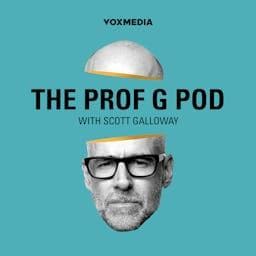To kick off 2026, Jeff and Michael weigh in on some key higher ed issues making headlines these days, starting with a deep dive into grade inflation at the nation’s colleges. A range of sources show that more students are getting A’s even as they are spending less time on schoolwork and deep reading. Meanwhile, AI is raising questions about the validity of college assessments when students can offload their work to chatbots. How can colleges respond? Other issues discussed include whether colleges should change what they teach as employers embrace AI, what types of colleges employers recruit from these days, and recent data on where online learning is most prevalent. This episode is made with support from Ascendium Education Group.
Chapters
0:00 - Introduction
1:34 - Are Those 2026 Coming True?
2:26 - Why Grade Inflation Is a Big Story Now
4:55 - How the Grade Inflation Issue Has Changed Since Al Franken Joked About It in 2002
6:43 - Why Professors Shouldn’t Grade the Students They Teach
8:38 - What If Mastery-Based Learning Upends Grading?
10:43 - Encouraging Students to Focus More on Feedback Than on Grades
12:16 - Has We Become an ‘Accomodations Nation’?
13:09 - Colleges Are Returning to Admissions Tests
15:01 - AI Could Help Admissions Officers Analyze Transcripts
19:17 - Are Elite Colleges Back at the Top of the List for Company Recruiters?
26:28 - Entry Into the Job Market Is Not Linear
27:55 - Sponsor Break
28:36 - What If AI Changes Nothing About What Students Need to Learn?
35:23 - New Data On Who Offers Online-Only Education
Relevant Links:
“Education Secretary Says She Wants to Shift Away From Higher Ed,” by Ryan Quinn in Inside Higher Ed.
“UC San Diego Sees Students’ Math Skills Plummet,” by Emma Whitford in Inside Higher Ed.
“High Grades are Presumably the Goal. So Why is Everyone Freaking Out?” by Michael Horn on Substack.
“Colleges Have Struggled To Curb Grade Inflation. Can Harvard Beat the Odds?” in the Harvard Crimson.
Sen. Al Franken’s 2002 Class Day speech at Harvard, from CSPAN.
“Accommodation Nation,” by Rose Horowitch in The Atlantic.
"Elite Colleges Are Back at the Top of the List for Company Recruiters.” by Lindsay Ellis in The Wall Street Journal.
“AI Changes Nothing About What Students Need to Learn,” by Rick Hess in Education Next.
“Fall 2024 IPEDS Data: Profile of US Higher Ed Online Education,” by Phil Hill In OnEdtech.
Connect with Michael Horn:
Sign Up for the The Future of Education Newsletter
Website
LinkedIn
X (Twitter)
Threads
Connect with Jeff Selingo:
Dream School: Finding the College That's Right for You
Sign Up for the Next Newsletter
Website
X (Twitter)
Threads
LinkedIn
Connect with Future U:
Twitter
YouTube
Threads
Instagram
Facebook
LinkedIn
Submit a question and if we answer it on air we'll send you Future U. swag!
Sign up for Future U. emails to get special updates and behind-the-scenes content.




































